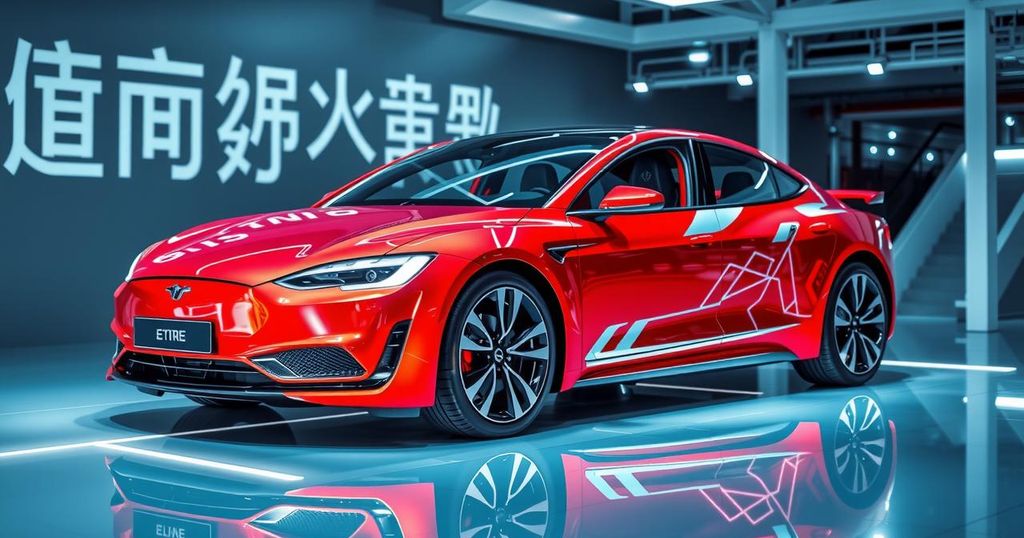China’s Electric Vehicles: Collaboration Opportunities Amid Trade Tensions

China’s electric vehicle industry has garnered global attention due to its significant innovation, robust manufacturing capabilities, and competitive domestic market. While facing criticisms and trade restrictions from Western nations, there is potential for collaboration in EV technology and climate action. By engaging in partnerships and reducing barriers, global stakeholders can jointly advance the transition to sustainable transportation.
The impressive rise of electric vehicles (EVs) manufactured in China has elicited both praise and skepticism on the international stage. Acknowledged for its substantial contributions to sustainable development and climate change mitigation, China’s advances in the EV sector stand in stark contrast to criticisms from Western media, which often label its success as the result of unfair practices. The reality, however, is that China’s EV success is underpinned by persistent innovation, a strong manufacturing framework, and a highly competitive domestic market.
China’s focus on cultivating innovation is a primary driver of its EV industry’s growth. Since the early 1990s, the Chinese government has made considerable investments in research and development, fostering collaboration among academic institutions, research organizations, and manufacturing industries. This cooperative environment has facilitated significant breakthroughs in EV technology but has not been exclusive to China—other nations, such as the United States and Germany, have employed similar strategies in their own technological advancements.
Furthermore, China’s well-established manufacturing ecosystem, characterized by a comprehensive supply chain that spans raw materials to advanced production, has enabled efficient and high-quality output in the EV sector. This robust manufacturing capability allows for rapid product development and alignment with international quality standards, empowering Chinese manufacturers to compete both domestically and globally.
The competitive nature of the Chinese domestic market serves as an additional catalyst for EV success. Chinese automakers are prompted to enhance product quality and innovation continually to meet the evolving preferences of consumers, thereby ensuring their readiness to engage in the international marketplace. Conversely, some Western nations have imposed trade restrictions, attempting to shield their own markets from Chinese competition, which poses a risk to progress on climate commitments and disrupts the global EV market.
In the European Union, these trade measures stand in contradiction to longstanding climate initiatives, potentially hampering the shift towards sustainable transportation. Instead of nurturing a competitive and innovative environment, such restrictions inflate costs for consumers and impede the broader transition to green energy technologies.
To navigate these challenges, Chinese EV manufacturers can consider forming joint ventures and establishing production facilities overseas, similar to strategies employed by Japanese automakers in previous decades. Additionally, there are opportunities for Chinese firms to engage in localized solutions and form partnerships with Western counterparts, particularly through collaborative research and development efforts. This collaborative approach will facilitate the shift from traditional combustion vehicles to electric platforms, enhancing competitiveness even amid protectionist pressures.
Chinese and Western governments can also work toward lowering trade barriers and standardizing regulations that impact traditional and electric vehicles. Collaborative efforts could include establishing international standards for charging infrastructure, battery technology, and safety metrics, thereby fostering trust and ensuring interoperability across markets.
In an era marked by geopolitical tensions and economic uncertainty, global cooperation is crucial to overcoming challenges and achieving sustainable development. China’s leadership in the EV domain can provide Western automakers with meaningful opportunities to engage in the global transition to electric vehicles. By promoting open markets and cooperative policy frameworks, nations can spur innovation, drive down costs, and work collectively towards climate goals.
The global rise of electric vehicles, particularly those produced by China, has significant implications for international climate action and the automotive industry. With China leading the charge in the EV sector through innovation, manufacturing efficiency, and a dynamic domestic market, it presents both challenges and collaboration opportunities for Western economies. While some trade barriers have been established due to perceived unfair practices, the discourse surrounding China’s contributions to EV technology merits a deeper examination of the overall benefits and potential for cooperative advancement in sustainable transportation.
The article highlights the significant role of China’s electric vehicle industry, emphasizing the nation’s innovative strategies and manufacturing prowess that contribute to its global success. Trade restrictions introduced by Western economies, particularly the EU, threaten to slow down the transition to greener transportation. It advocates for cooperation between Chinese firms and Western partners to foster innovation, lower costs, and align efforts towards achieving global climate objectives, ultimately calling for a collaborative approach to addressing pressing environmental challenges.
Original Source: www.chinadaily.com.cn





